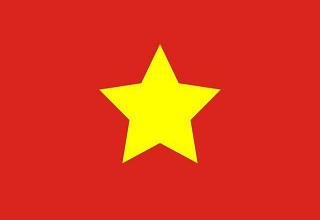Regarding the Inspection and Quarantine Requirements for Imported Fresh Pineapple Fruits from Sri Lanka
In accordance with relevant laws and regulations of China, as well as the requirements stipulated in the Protocol between the General Administration of Customs of the People's Republic of China and the Ministry of Agriculture and Agrarian Industries of the Democratic Socialist Republic of Sri Lanka on Phytosanitary Requirements for Pineapples for Consumption from Sri Lanka to China, fresh pineapples for consumption from Sri Lanka that meet the following relevant requirements are allowed to be imported effective immediately:
I. Basis for Inspection and Quarantine
(1) The Biosafety Law of the People's Republic of China;
(2) The Entry and Exit Animal and Plant Quarantine Law of the People's Republic of China and its implementation regulations;
(3) The Food Safety Law of the People's Republic of China and its implementation regulations;
(4) The Administrative Measures for Inspection, Quarantine and Supervision on Import of Fresh Fruits;
(5) The Protocol between the General Administration of Customs of the People's Republic of China and the Ministry of Agriculture and Agrarian Industries of the Democratic Socialist Republic of Sri Lanka on Phytosanitary Requirements for Pineapples for Consumption from Sri Lanka to China.
II. Permitted Imported Commodity Name
Fresh pineapples for consumption (hereinafter referred to as pineapples), with the scientific name Ananas comosus and English name Pineapple.
III. Permitted Areas of Production
Pineapple production areas in Sri Lanka.
IV. Approved Orchards and Packing Plants
Orchards and packing plants for the production of pineapples for export to China shall be registered and approved by the Ministry of Agriculture and Agrarian Industries of the Democratic Socialist Republic of Sri Lanka (hereinafter referred to as the Sri Lankan side) and the General Administration of Customs of the People's Republic of China (hereinafter referred to as the Chinese side). The registration information, including names, addresses and registration numbers, shall be provided to facilitate accurate traceability in case of non-compliance of exported goods. The Sri Lankan side shall provide an updated list of registered orchards and packing plants to the Chinese side every six months, which shall be reviewed and approved by the Chinese side before being published on the website of the General Administration of Customs.
V. List of Quarantine Pests of Concern to the Chinese Side
1.Achatina fulica
2.Chromolaena odorata
3.Dickeya chrysanthemi(=Erwinia chrysanthemi)
4.Digitaria abyssinica
5.Frankliniella schultzei
6.Paracoccus marginatus
7.Pseudococcus viburni
8.Solanum torvum
9.Tomato spotted wilt virus
VI. Pre-export Management
1. Orchard Management
(1) Orchards for the production of pineapples for export to China shall establish a sound quality management system and traceability system under the supervision of the Sri Lankan side, implement Good Agricultural Practices (GAP) to ensure the traceability of the production process, maintain orchard sanitary conditions, and implement Integrated Pest Management (IPM), including regular pest monitoring, chemical or biological control, and agricultural operations as control measures.
(2) The Sri Lankan side shall formulate management plans for quarantine pests of concern to the Chinese side in accordance with the requirements of International Standard for Phytosanitary Measures No. 6 (ISPM 6), and organize the implementation of pest monitoring and integrated pest management in orchards for the production of pineapples for export to China.
(3) Pest monitoring and control shall be carried out under the guidance of technical personnel. The technical personnel shall be trained by the Sri Lankan side or its authorized institutions.
(4) For quarantine pests of concern to the Chinese side, such as papaya mealybug and obscure mealybug, monitoring surveys shall be conducted during the growing season, at least once every two weeks from the flowering period to the end of the harvesting period. The survey shall focus on observing whether the target pests are present on the fruits, stems, and leaves. If pests are detected during monitoring, control measures, including chemical or biological control, shall be taken immediately to control the occurrence of pests or maintain a low prevalence level of pests.
(5) For Dickeya chrysanthemi, the Sri Lankan side shall establish an orchard monitoring system, strengthen orchard management, and conduct field monitoring surveys every two weeks during the pineapple growing period. If suspicious symptoms are found, samples shall be taken immediately and sent to the laboratory for identification. Once confirmed as Dickeya chrysanthemi, the relevant diseased plants shall be removed and necessary pest control measures shall be taken, while strengthening the investigation and monitoring of the affected orchard.
(6) Orchards for the production of pineapples for export to China shall keep records of pest monitoring and control for at least two years, and shall provide such records to the Chinese side upon request. The records shall include information on the active ingredients of chemical pesticides used in the production process, application dates, and dosages.
2. Packing Plant Management
(1) The processing, packaging, storage, and loading of pineapples for export to China shall be carried out under the quarantine supervision of the Sri Lankan side or its authorized institutions.
(2) If packaged pineapples need to be stored, they shall be immediately stored in a warehouse and kept separately to avoid re-infestation by pests.
(3) Packing plants shall establish a traceability system to ensure that pineapples for export to China can be traced back to registered orchards. Records shall be kept of processing and packaging dates, names or registration numbers of source orchards, quantities of pineapples received by the packing plant, export dates, export quantities, destination countries, container numbers, seal numbers, etc. If chemical pesticides are used during processing, records shall be kept of the dates of use, names, active ingredients, and dosages of the chemical pesticides. Records shall be kept for at least two years.
3. Packaging Requirements
(1) Packaging materials shall be clean, sanitary, and unused, and shall comply with relevant phytosanitary requirements of China. If wooden packaging materials are used, they shall comply with the relevant requirements of International Standard for Phytosanitary Measures No. 15 (ISPM 15).
(2) The processing and packaging of pineapples for export to China shall be carried out in registered packing plants. During the packaging process, manual sorting, screening, brushing, or high-pressure water washing shall be conducted to ensure that the fruits and crowns are free from insects, mites, snails, rotten fruits, weed seeds, plant debris, and soil.
(3) Each package box shall be labeled in Chinese or English with information such as the fruit name, country, production area (province, city or county), orchard name or registration number, packing plant name or registration number, etc. Each package box and pallet shall be labeled in Chinese or English with "Exported to the People's Republic of China".
(4) Pineapples for export to China shall be transported in clean and sanitary sealed containers, and sealed, with the seals remaining intact upon arrival at the entry port in China.
4. Pre-export Inspection and Quarantine
(1) During the first two years of trade, the Sri Lankan side or its authorized officials shall inspect each batch of pineapples for export to China by sampling at a rate of 2% of the batch quantity. If no phytosanitary issues occur within two years, the sampling inspection rate may be reduced to 1%.
(2) If live quarantine pests of concern to the Chinese side are found, the entire batch shall not be exported to China, and the export of pineapples from the relevant orchards and packing plants for that export season shall be temporarily suspended as appropriate. The Sri Lankan side shall investigate the cause and take effective improvement measures; it shall also keep relevant records and provide them to the Chinese side upon request.
5. Phytosanitary Certificate Requirements
For pineapples that pass quarantine inspection, the Sri Lankan side shall issue a Phytosanitary Certificate, indicating the names or registration numbers of the orchards and packing plants, as well as the container numbers, and include the following additional declaration: "This consignment complies with the requirements specified in the Protocol of Phytosanitary Requirements for Export of Fresh Pineapple Fruits from Sri Lanka to China, and is free from quarantine pests of concern to China."
Prior to the commencement of trade, the exporting country shall provide samples of the Phytosanitary Certificate to the importing country for confirmation and record-keeping.
VII. Entry Inspection, Quarantine, and Handling of Non-Compliant Goods
Upon arrival at the entry ports, the Chinese Customs shall carry out inspection and quarantine according to the following requirements:
1. Verification of Certificates and Labels
(1) Verify whether the imported fruits have obtained the "Importation Permit for Plants and Animals."
(2) Verify whether the Plant Quarantine Certificate complies with the provisions of Article 6(5) of this notice.
(3) Verify whether the labels on the packaging boxes and pallets comply with the provisions of Article 6(3) of this notice.
2. Entry Inspection and Quarantine
(1) Pineapples intended for importation into China shall enter through ports approved by the Chinese authorities for the importation of fruits.
(2) In accordance with relevant laws, regulations, and rules, inspection and quarantine shall be conducted on imported pineapples. Those that pass the inspection and quarantine shall be allowed to enter the country.
3. Handling of Non-Compliant Goods
(1) If pineapples are found to originate from orchards or packaging factories not approved by the Chinese authorities, the shipment shall not be allowed to enter the country.
(2) In the event of the presence of quarantine pests of concern to China or other newly occurring quarantine pests from Sri Lanka, or if soil is detected, the shipment shall be returned, destroyed, or treated to eliminate the pests.
(3) If the goods fail to meet Chinese national food safety standards, the shipment shall be returned or destroyed.
(4) In the event of the above non-compliance, the Chinese authorities shall immediately notify the exporting country and, depending on the situation, suspend the importation of pineapples from the relevant orchards or packaging factories for the current export season. The exporting country shall investigate the reasons for non-compliance, urge the relevant orchards and packaging factories to rectify the situation, and prevent similar occurrences. Based on the results of the exporting country's rectification, the Chinese authorities will decide whether to lift the suspension measures.
GACC
April 1, 2024






